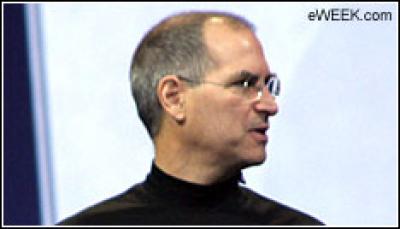Apple CEO Steve Jobs should be returning to his full-time position in coming weeks after recently undergoing a liver transplant. However, controversy remains over how desktop, notebook, iPod and iPhone maker Apple handled his illness and whether it will lead to additional investigations from the FTC and other bodies.
As first reported in The Wall Street Journal on 20 June, Jobs underwent the transplant in Tennessee “about two months ago.” The name of the hospital where the operation was performed was a subject of unconfirmed speculation until 23 June, when the Methodist University Hospital Transplant Institute in Memphis, Tenn., issued a statement saying that Jobs had in fact had his liver transplanted there.
According to the hospital, Jobs was the patient “with the highest MELD score (Model for End-Stage Liver Disease) of his blood type and, therefore, the sickest patient on the waiting list at the time a donor organ became available.”
The MELD score attempts to predict a patient’s chances of surviving chronic liver disease; both the United Network for Organ Sharing and Eurotransplant use it to determine which patients should receive livers, with a maximum score of 40 suggesting death within three months if a transplant is not performed.
Despite the reported severity of his preoperative condition, the hospital said, “Jobs is now recovering well and has an excellent prognosis.” Jobs also approved the hospital’s release of news about the transplant. The Methodist University Hospital Transplant Institute performed 120 such operations in 2008.
The statement came a day after a handful of print and online media outlets, including The New York Times, publicly questioned how Jobs managed to receive his liver so rapidly despite the oft-publicised lack of available organs nationwide. The hospital’s news release took care to emphasise the severity of the Apple CEO’s condition and the rigorous procedure involved in admitting him as a patient, but did not disclose details about the case.
Perhaps intent on showing some vigor now that his return to full-time work seems imminent, Jobs issued a statement trumpeting the successful launch of his company’s new smartphone, the iPhone 3G S, which broke the 1 million mark in sales on its third day of release.
“Customers are voting and the iPhone is winning,” Jobs wrote. “With over 50,000 applications available from Apple’s revolutionary App Store, iPhone momentum is stronger than ever.”
Healthy and ready to return to work Jobs may be, but details surrounding his months-long medical leave—originally blamed on a “hormone imbalance”—could continue to generate controversy.
“Typically, in the case of serious medical issues, an executive will go on leave and it’s all done in a pretty up-front manner. The lack of transparency on Apple’s part is sort of unprecedented,” Charles King, an analyst with Pund-IT, said in an interview. “It could spark something from the [Federal Trade Commission] if Apple seemed like they were trying to protect the stock.”
Jobs was previously under investigation as part of a stock option backdating controversy, which saw the Securities and Exchange Commission file charges against the company’s former chief financial officer and its former general counsel, accusing the latter of fraudulently backdating stock options for Apple’s executive team.
Apple was under pressure during Jobs’ absence to show that the company could operate and maintain its stock price even in the absence of the CEO, who is considered its figurehead and driving force. Certain pundits have argued that it is precisely because of Jobs’ one-of-a-kind position that Apple should have been more forthright about his condition; but aside from vague statements, Apple has remained impressively close-lipped about Jobs’ health.
“Corporate transparency is becoming cellophane-like,” King said. “With a growing number of social-media outlets, people want to be seen as really open. Apple, for a company that wants to be seen as cutting-edge, has an opacity that is remarkably old-school.”
Whether the issues will fade once Jobs returns to full-time work, or whether they will snowball into a larger concern, remains an open question.





